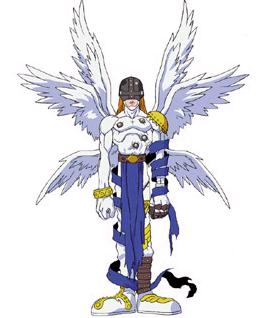 Dave Mallow: I was a bouncer at a small,
Chinese restaurant, when one day I met a strange, Chinese woman
with a Swedish accent, who wore off-the-rack, discount jeans...
no, wait a minute... that's somebody else... let me start again:
Dave Mallow: I was a bouncer at a small,
Chinese restaurant, when one day I met a strange, Chinese woman
with a Swedish accent, who wore off-the-rack, discount jeans...
no, wait a minute... that's somebody else... let me start again:The dream started at a 3,000 watt radio station in the Middle West... forget it, too pretentious... ahem...
I've never aspired to on-camera or stage roles, so I've always differentiated what I do from the work of your basic actor-clone. While it does comes down to acting ability, the term I would choose would be 'voice artist.' After twelve years as a disc jockey/air personality, it seemed a logical progression to segue into commercials, narration, post-production voice work for film and television... and that's also when film dubbing raised it's nasty little head. It was soon after I relocated to Los Angeles in 1984. I both credit and blame a guy named Steve Kramer for helping me get started in the wild and woolly dubbing world. We shared a commercial agent and he suggested I drop a tape at a place called Intersound. They had recently finished work on “Robotech” and were gearing up something new.
CMcF: You used to be a radio personality in the Midwest and NYC - tell me about that. How did you get the job? What did it entail?
DM: My father had been in radio and television. It seemed like a pretty cool job to me (and no heavy lifting!), so I'd wanted to do that from very early on. Like most in that industry, I got a part-time job at a small station and worked my way up. Many 'jocks' become nomads, moving from one station to another. I'm fortunate in that my second and final move was for on-air work in New York City. It was the stereotypical WKRP in Cincinnati sort of work. I've known a few Dr. Johnny Fevers along the way. Read the news. Introduce the traffic girl. Play the record. Read the live commercial. Give the time
and weather. Turn on the radio; they're everywhere! I did everything from progressive rock to adult contemporary, 'mellow rock' to... (bowing my head in shame) ...disco. Hey, a gig's a gig.
You get a chance to learn a little bit of everything... copy writing, sales, production. It was good training. That lead to more responsibility - music director and program director.
CMcF: Following on from that, how did you break into the voice-acting industry?
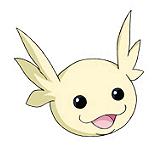 DM: The
first step beyond an on-air shift was learning the ropes in the
area of commercials. Made a demo tape. Got an agent. Went on
auditions. Met casting directors. You do what it takes to become
a known commodity and hope for the best.
DM: The
first step beyond an on-air shift was learning the ropes in the
area of commercials. Made a demo tape. Got an agent. Went on
auditions. Met casting directors. You do what it takes to become
a known commodity and hope for the best.My first taste of voice acting, as mentioned, was for Intersound studios... dubbing anime. When I started in the mid 80's the general route was to beg your way in to do 'bits and walla' and then if you showed promise, you were eventually hired to do a continuing character.
The logical step from there, while continuing to do voice work, is to become a writer/adapter and voice director. I learned from the best and the accent was on perfect lip-sync. It was tedious and time consuming work. The process hasn't really changed. There are few short-cuts. As a writer, you're given a tape of the project/show and a literal translation from the language in which it was originally recorded. You disappear in hiding for a few days, stop bathing and answering the phone as you comb through the tape second-by-second, noting the time code and finding English words that will not only be story-appropriate, but also match the lip movement. The easy part was then going into the studio to direct the piece. By comparison to the homework, it's almost like a vacation. Well, after some 150 different projects and episodes, I grew tired of the sheer tedium involved, pulled away from that and really haven't looked back. I much prefer to be a hired-gun who comes in and voices his lines and leaves. I still have the greatest respect for those who continue to put themselves through the work involved with adapting and directing, though. I know how difficult it really is. Hey, can you pass the Visine??
CMcF: Through what events were you approached for the "Digimon" series? How did you end up getting cast in the role as Angemon?
DM: I've worked on Saban shows since they started to buy foreign products, re-do the audio tracks and market them. The first show they did was “Macron I” and I got to play a character with a name (Jet), instead of the bits and walla world of 'Pilot 1' or ‘Truckdriver B.’ There's been a succession of shows since, but “Power Rangers” really put things in a whole different perspective. As for “Digimon,” I was called in to audition... and Angemon (among others) got a voice.
CMcF: How often were/are you called in to work on "Digimon"? What is a typical studio session like?
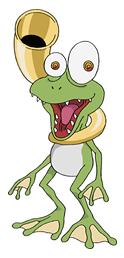 DM: On average,
once a week. Sometimes we'll work on more than one episode at a
time. That depends on a variety of factors. A typical session is
pretty much the same for everyone. Each actor is booked for a
specific time, signs in and then goes into the recording booth,
awaiting instructions from the director. Aside from the 'bits and
walla’ (crowd stuff) sessions, actors work alone and only
see the 'loops' or separate sentences/reactions, etc. that he/she
has to do. The time code has been noted by the adapter, so the
engineer knows just what frame the character opens his/her/its
mouth. The actor hears three 'beeps' in the headset, knowing that
it's 'showtime' on the beat of the fourth, but imaginary 'beep.'
Having quickly memorized what's necessary for that single 'loop,'
you're watching the screen for your character (essentially
quickly searching for that mouth). If what you've done suits the
director, you move on... otherwise, you try, try again, until you
get it right. It has always amazed me that this process even
works at all. You don't perform with any of the other characters
and vice-versa, yet it all eventually sounds like one, flowing
scene. Part of the fun is doing action sequences without
previewing them. We call this 'playing the screen'... and trying
to come up with just the right grunts, groans and reactions as
they play out. Some actors are quicker than others and it's more
involved than you may think. You're doing a number of things at
once.
DM: On average,
once a week. Sometimes we'll work on more than one episode at a
time. That depends on a variety of factors. A typical session is
pretty much the same for everyone. Each actor is booked for a
specific time, signs in and then goes into the recording booth,
awaiting instructions from the director. Aside from the 'bits and
walla’ (crowd stuff) sessions, actors work alone and only
see the 'loops' or separate sentences/reactions, etc. that he/she
has to do. The time code has been noted by the adapter, so the
engineer knows just what frame the character opens his/her/its
mouth. The actor hears three 'beeps' in the headset, knowing that
it's 'showtime' on the beat of the fourth, but imaginary 'beep.'
Having quickly memorized what's necessary for that single 'loop,'
you're watching the screen for your character (essentially
quickly searching for that mouth). If what you've done suits the
director, you move on... otherwise, you try, try again, until you
get it right. It has always amazed me that this process even
works at all. You don't perform with any of the other characters
and vice-versa, yet it all eventually sounds like one, flowing
scene. Part of the fun is doing action sequences without
previewing them. We call this 'playing the screen'... and trying
to come up with just the right grunts, groans and reactions as
they play out. Some actors are quicker than others and it's more
involved than you may think. You're doing a number of things at
once. CMcF: Once you were affirmed as the voice of Angemon, what was the process behind your getting to play further characters in the series, such as Gekomon and Upamon?
DM: Sometimes you'll audition again... sometimes the producers/directors know you well enough to just cast you without making you jump that hurdle again. Basically, if an actor is versatile, sufficiently talented, has proven professional and reliable and is easy to get along with, they keep getting hired. Economics figures into the picture, too. We're paid one fee, but may do multiple characters. If you have a character that may only have five lines in a show, it makes good money sense to have you do another character or two, as well. Never underestimate the power of the bottom line.
CMcF: You are very adept at disguising your voice, so, if you can remember - did you do any voices other than: Angemon, MagnaAngemon, Seraphimon (in the movie), Pegasusmon, Gekomon, Upamon, and the season one narrator?
DM: Yeah, I did. I wish I could remember their names and there were a few grunting and roaring monsters in among the mix, too. Most of us work for a number of different companies. We're jumping from studio to studio and character to character. It's easier than you would imagine to get lost among the different names and voices... especially if the character only was around for an episode or three.
CMcF: Of all the voices you've done on the series, which one would you say is the character you most enjoy doing?
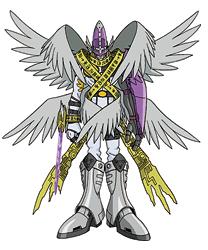 DM: The weird ones... Gekomon comes to
mind. Upamon is fun, too. Honestly, Angemon is a pretty dull guy,
who doesn't say much and repeats himself. That's said with a
smile, but the quirkier characters allow for more creativity and
leave you feeling like you've brought something different into
the mix.
DM: The weird ones... Gekomon comes to
mind. Upamon is fun, too. Honestly, Angemon is a pretty dull guy,
who doesn't say much and repeats himself. That's said with a
smile, but the quirkier characters allow for more creativity and
leave you feeling like you've brought something different into
the mix.CMcF: Something that a lot of fans noticed was that during his appearances in the latter period of the second season, MagnaAngemon underwent a noticeable change in his voice - some likened it to sounding like a "geezer." Some suggested you might have had a cold that day. Can you shed some light on this? Was it the result of a decision on your part, an instruction by the voice directors, or a slip of the tongue (voicebox?)?
DM: "Geezer!!???" Alright, let's step outside and I'll have my bodyguard tune up your kneecaps!!! I honestly don't recall if MagnaA started out one way, then evolved or if he always had the breathy 'Clint Eastwood' thing going for him. Decisions on voices are always a collaboration between actor and director. We 'throw something out' and see if it's accepted, rejected or subject to fine-tuning. Choices are generally made very quickly... time is money. If I'm not mistaken, the MagnaA thing was purposely designed to differentiate him from the other incarnations of the character. Wasn't he a horse part of the time, instead of the Angel dude in lycra pajamas?? To set the record straight, my voicebox does not slip... and what I do with my tongue is none of your business. A cold? Don't you know that actors never get colds? Actors with colds don't get paid to work!
CMcF: Do you think that you were you cast in other Saban projects as a direct result of your popular work on Digimon (or vice versa), or was each assignment independently secured?
DM: All of the above. Given a chance, you prove your worth over time and never stop proving yourself. The nature of this business means constantly rotating management, producers, staff, directors, etc... each of whom may have no idea of who you are or what you've done last week or last year. We'd like to think that we each have something unique to offer and will be remembered the next time around. Bribes and free massages don't hurt, either. ‘Need your car washed??’
CMcF: One often gets the impression that voice actors are offered rather little appreciation for the work they do. Of course, there are exceptions like Dan Castellaneta and other such Simpsons actors, for example - but what are your thoughts on this?
DM: By it's very nature, we're unseen and unsung. The biggest names in the voice field (such as Frank Welker, Don La Fontaine and Harry Shearer, etc.) are totally unknown to the general public, who hear them on a DAILY basis. Sure, we all have egos or we wouldn't be able to show up behind a microphone, but then we don't have to dress up (although bathing is encouraged) and it beats working for a living. The truth? We're all working stiffs who want to bring home a paycheck at the end of the day. All the rest is icing on the cake. It continues to surprise that there are fans such as you guys, who keep track of us and care one way or the other.
If there's a consensus among actors, though, it has more to do with the pay scale relative to the voice first pre-animation/non dubbing than it does with notoriety. Of the two, the Screen Actor's Guild dubbing rate is on the lower end by an exponential figure. They also get the annuity of residuals when the work is repeatedly shown. Dubbing requires a unique talent. Thankfully, not everyone can do it well, but there are economic constraints that impact this end of the business.
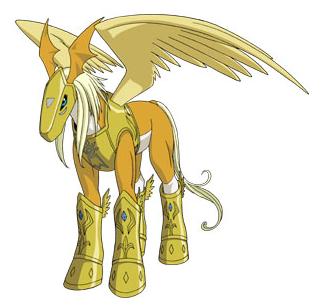 CMcF: Do you have any
advice for those out there who aspire to be voice actors?
CMcF: Do you have any
advice for those out there who aspire to be voice actors?DM: Don't quit your day job... and always signal your intentions in traffic, whether you're in a car or not!
This is a very insecure business and the odds aren't really in your favor. I would only suggest pursuing a career such as this if you can't NOT do it. You have to really want it. Then, do your homework; read anything you can get your hands on about this corner of the acting game. Take voice over and animation workshops. Approach someone who makes demo tapes and work with them on creating what best displays your ability. The next step is finding an agent who believes in you (most of us have agents, but the second part can be elusive). An agent is the conduit to auditions and the rest is all up to you. There's a LOT of competition. While there are those who make livings in smaller markets, you really need to relocate to where it's happening... either New York, Los Angeles or perhaps Chicago... and then it comes down to networking, making contacts and friends and hoping for the best.
CMcF: What do you do in your spare time? What interests does "the voice of Angemon" have?
DM: Music remains a passion. Love the 'art rock/progressive' stuff. XTC, Peter Gabriel, Sting, Crowded House, Mike Oldfield, Yes, older Genesis, Flower Kings, Ben Folds Five, Joe Jackson. Used to play in a group and still mess a bit with bass guitar. Love films and have a surround-sound set up and hard-disk video capture and DVDs. The more independent, character-driven dramas and darker comedies hold my interest. Offbeat comedy is a major pleasure... Fawlty Towers, Martin Short, Robin Williams, etc. I have a home in the Hollywood Hills with a great view - which my cat allows me to think of as my own... and I enjoy upgrading and improving it. Spending about six hours a week doing yoga, have amazed myself that I've stuck with it for more than ten years. Just got a new AudiTT coupe sports car, which is very cool to drive... I'm pretty low-key. Not much of a party animal. Not into sports or clubbing. And I spend far too much time writing email and surfing the web.
DM: My fingers are tired. Can I go back in my cage now? Oh, wait... it's almost time for Oprah!!